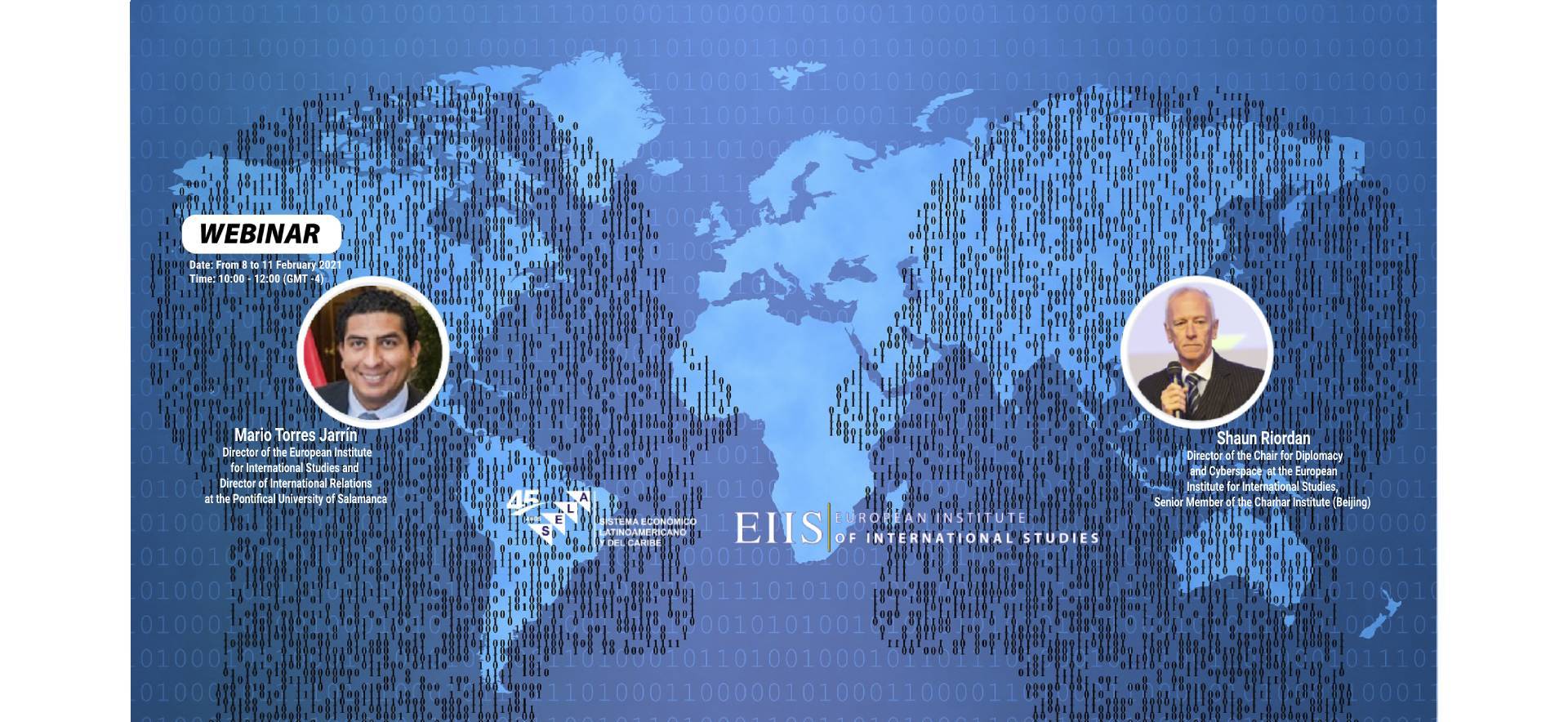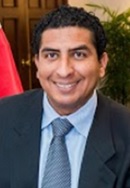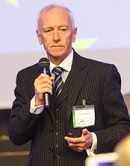
One of the main activities of the Permanent Secretariat of the Latin American and Caribbean Economic System (SELA), under the mandate of the XLVI Latin American Council, is to promote the development in Latin America and the Caribbean of negotiating capacities for the governance of cyberspace. To meet this goal, it is organising, together with the European Institute for International Studies (EIIS), two training courses focused on Cyber Diplomacy and Techplomacy.
This innovative proposal aims to launch a training programme with an informative session on Cyber Diplomacy and an approach to the relationship between diplomacy and technology, and subsequently examine the application of diplomacy to the political and geopolitical problems arising with the digital technology sectors.
In this regard, in its first stage, the activity envisages a Specialization Course on Cyber Diplomacy aimed at describing the application of diplomacy to the political and geopolitical problems that have arisen in cyberspace. In its second stage, it will address the Specialization Course on Techplomacy with the purpose of describing the interaction between States and large companies in the technology sector.
The first session on Cyber Diplomacy will provide initial training, as described below.
Technological development has grown exponentially in recent years. Technology and digitization are essentially global and have a profound impact on all aspects of our society.
Foreign policymakers in general, and especially those in Latin America and the Caribbean, must adapt to this new reality and make efforts to establish a more comprehensive dialogue with a wide spectrum of technological actors. The goal to achieve is to develop negotiating capabilities and gain a better understanding of technological development at the international level to promote the interests of the region in the digital age.
Foreign policymakers in general, and especially those in Latin America and the Caribbean, must adapt themselves to this new reality and make efforts to establish a more comprehensive dialogue with a wide spectrum of technological actors. The goal to achieve is to develop negotiating capabilities and gain a better understanding of technological development at the international level in order to promote the interests of the region in the digital age.
The world of cyberspace comprises the Internet, social actors, devices and technologies connected to it. Its components range from physical infrastructure, network neutrality, encryption, data protection, even for unacceptable content. These are elements with political and geopolitical contents that include key issues such as Internet governance and cybersecurity, involving diplomats and negotiators.
The current dynamics shows that Internet governance has brought about very significant social changes, so close cooperation between the technology industry and the authorities is needed. In this regard, it is necessary for Ministries of Foreign Affairs or their equivalents to place the issue of Internet governance and international cybersecurity at the centre of their foreign policies and international strategies, and ensure that their officials have the knowledge and skills to have an efficient performance in their management of international governance and online security.
Internet governance creates problems in the digital spectrum that form part of the new challenges to be faced. This situation requires well-trained professionals to analyse motivations and intentions and mitigate the risks of escalation and conflict that may occur in the area of cybersecurity, whose origin and solution can go beyond technical measures.
Standards of behaviour in cyberspace remain to be defined in international law. The Ministries of Foreign Affairs are the actors par excellence to start and make progress with this task, with the support of experienced diplomatic officials using networks of contacts with State and non-State actors so as to identify common preferences that can serve as the basis for the development of an international law in cyberspace.
Taking into account all of the above, the Permanent Secretariat of SELA proposes the Foreign Ministries of the member countries to narrow the relationship between diplomacy and technology by providing training to their diplomatic officials, in which they acquire sufficient expertise for an effective relationship with technological actors, as well as the necessary training for future standard-setting negotiations governing the issue.
In this scenario, the Ministries of Foreign Affairs of Latin America and the Caribbean are expected to understand the importance of cyberspace and be attentive to the implications of these digital technologies for geopolitics and international relations. It is equally important for them to have an adequate preparation to contribute to the construction of Internet governance, especially because of the role of non-state actors in developing new cyber international law progressively and over time.
For this reason, the Permanent Secretariat of SELA has deemed it convenient to carry out the “Specialization Course on Cyber Diplomacy” so that specialists and decision-makers in the field of international negotiations can acquire and develop technical capabilities that will be useful in the treatment of the issues of the global agenda.
The objectives of this course are as follows:
This course lasts 8 hours and will be carried out over 4 days (2 hours per day). It is divided into four online workshops and includes teaching material in both written and multimedia format.
Date
The “Specialization Course on Cyber Diplomacy” will take place from 08 to 11 February 2021, from 10:00 am to 12:00 m (Caracas time), through the SELA ZOOM Platform.
Languaje
The official language of the event will be Spanish. There will be translation into English if necessary.
Opening session
Monday 08 February 2021
| 10:00 | WELCOME SESSION
Moderator: Ambassador Oscar Hernández. Director of Relations for Cooperation and Integration (SELA) |
| Specialization Course on Cyber Diplomacy | |
| 10:15 – 12:15 | Session 1: Introduction to Cyber Diplomacy
|
| Tuesday, 09 February 2021 | |
| 10:00 – 12:00 | Session 2: Internet Governance
|
| Wednesday, 10 February 2021 | |
| 10:00 – 12:00 | Session 3: Cybersecurity
|
| Thursday, 11 February 2021 | |
| 10:00 – 12:00 | Session 4: International Law in Cyberspace
|
Ambassador Oscar Hernández. Director of Relations for Cooperation and Integration of SELA.

Mario Torres Jarrin
Professor Dr. Mario Torres Jarrín is Director of the European Institute for International Studies (Sweden) and Director of International Relations at the Pontifical University of Salamanca (Spain).
He has been a professor and researcher at Stockholm University (Sweden) and the Friedrich Alexander University Erlangen-Nuremberg (Germany), as well as visiting professor at Copenhagen Business School (Denmark), University of Bergen and University of Oslo (Norway), University Institute of Lisbon (Portugal), National University of Political Studies and Public Administration (Romania), University of Salamanca (Spain), University of Economics and Anglo American University (Czech Republic) and at different diplomatic academies in Europe and the Americas.
He is a member of the EU-LAC Academic Forum, a member of two Task Forces of the G20/T20 summit system (Task Force on the “Future of Multilateralism and Global Governance” and the Task Force on the “The Future of the Economy, Education and the Labour Market in the Digital Age”.
He is a member of three Jean Monnet Research Projects funded by the European Commission: “Project EU-LAC Relations: Future Scenario in a World of Change”, “Project on the Atlantic. EU-LAC Relations between Diplomacy and Paradiplomacy” and the “Project: Studies on Multilateralism and Regionalism”.
Dr. Torres Jarrín completed all his studies at the University of Salamanca (Spain), he studied Business Sciences (Faculty of Economics and Business), has a Master’s Degree in Studies of the European Union (Faculty of Law) and a PhD in History (Faculty of Geography and History).

Shaun Riordan
Shaun Riordan is Director of the Chair for Diplomacy and Cyberspace at the European Institute for International Studies, Senior Member of the Charhar Institute (Beijing) and Senior Visiting Fellow of the Netherlands Institute of International Relations. He is a Principal Consultant on digital diplomacy and cyber diplomacy at UNITAR and a consultant on public diplomacy at UNDP. He has taught at diplomatic academies in Spain, Armenia, Bulgaria, Mongolia, Qatar and the Dominican Republic, as well as the Stock Exchange Institute in Madrid. He has been an associate professor at the LSE Global Governance Center.
Shaun is a former British diplomat who served at the UN, Taiwan, China and Spain, as well as in the Counter-Terrorism Departments of the Ministry of Foreign Affairs in London.
He is the author of “The New Diplomacy” (2003), “Adiós a la Diplomacia” (2005), “Cyberdiplomacy; Gestión de la seguridad y la gobernanza en línea” (2019) and “La geopolítica del ciberespacio: una perspectiva diplomática” (2019). He is also co-author of ” Los Futuros para la Diplomacia: La Diplomacia Integradora en el Siglo XXI” (2012) and the recent policy brief of the T20 “La ciberdiplomacia de la construcción de las normas en el ciberespacio”. He holds a bachelor’s degree and a master’s degree in Philosophy from the University of Cambrigde (United Kingdom).
Attendance at this Course is subject to invitation from co-sponsors.
A maximum of 60 people will participate, including civil servants, specialists, and academics.
This Course is mainly aimed at experienced diplomatic public officials or international negotiators involved in foreign policy decision-making, as well as academics and specialists linked to the international negotiation processes of the Ministries of Foreign Affairs or responsible agencies in Latin America and the Caribbean. A training certificate will be provided.
Coordination by the Permanent Secretariat of SELA:
Amb. Oscar Hernandez
Director of Relations for Integration and Cooperation
Telephones: (58-212)-955-7111 / 955-7134
E-mail: ohernandez@sela.org
Sayed Durán
Analyst of Relations. Directorate of Relations for Integration and Cooperation
Telephones: (58-212)-955-7111 / 955-71
E-mail: sduran@sela.org
Lourdes Cobo
Analyst of Relations. Directorate of Relations for Integration and Cooperation
Telephones: (58-212)-955-7112 / 955-7111
E-mail: lcobo@sela.org
Coordination by the European Institute for International Studies (EIIE)
Mario Torres Jarrín
Director
Telephones: +46 721 74 99 07
E-mail: mario.torres@ieeiweb.eu
